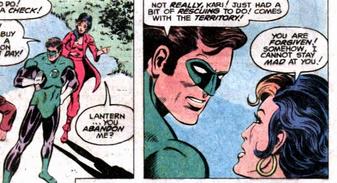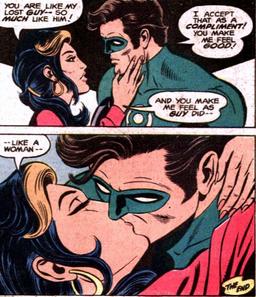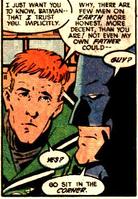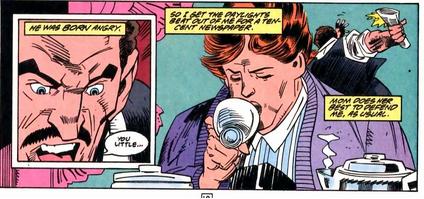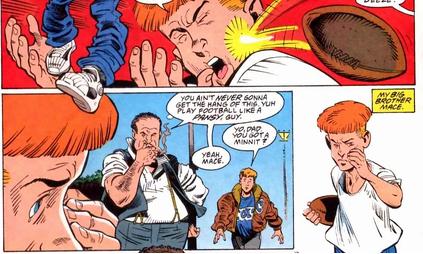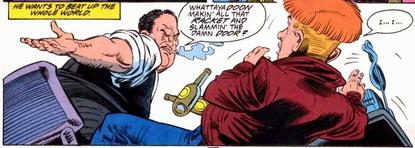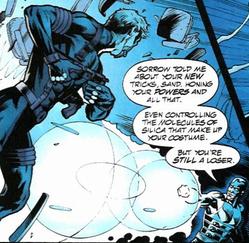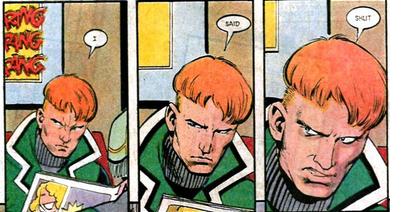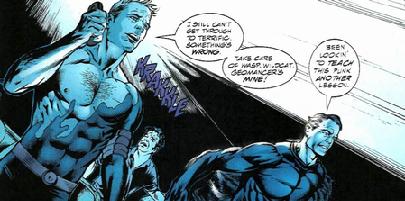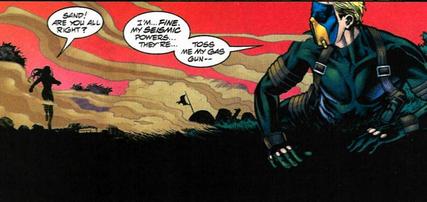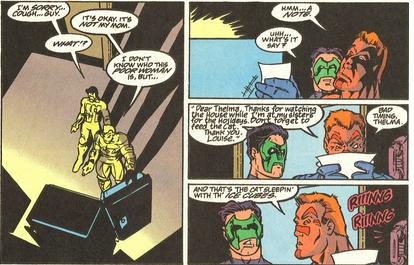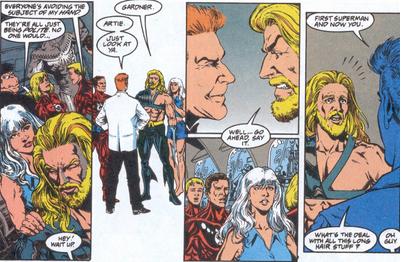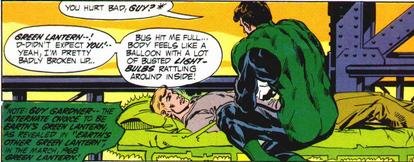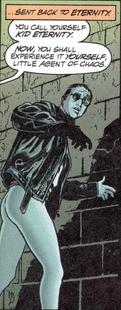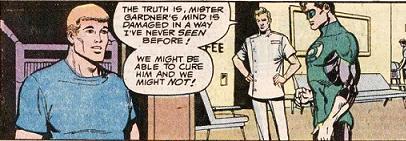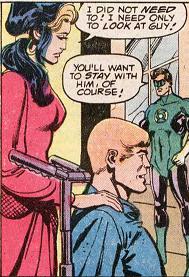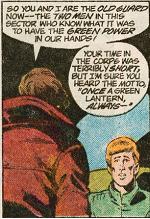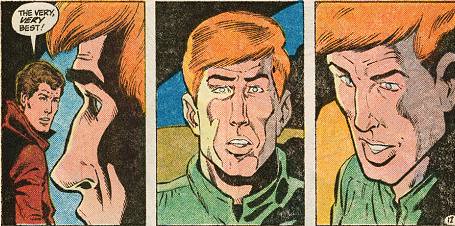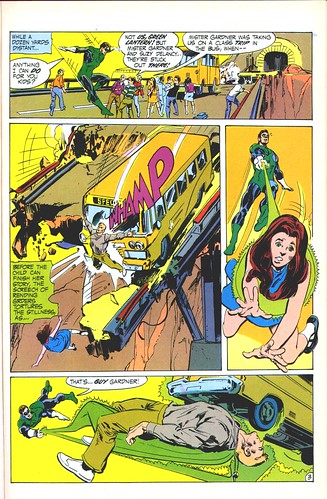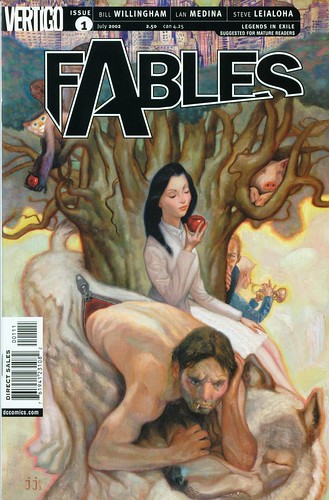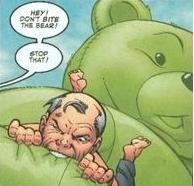I've mentioned how growing up, I tended to hate the image of the token white girls in children's shows. About the pink, and the prettiness, and the utter lack of substance.
Well, I have to give credit where credit is due, because there was a reason I hated these portrayals. A reason I was, even before the age of ten, frustrated with the lack of powerful portrayals of characters with my race and gender. And that's because even earlier than that, I had been lucky enough to be blessed with exposure to a cartoon show with strikingly positive portrayals of strong, intelligent and powerful women.
That cartoon show? He-Man and the Masters of the Universe.
Heh, I can imagine your skepticism already. The connotations of the term "He-Man", the very male oriented premise of the plot, even the existance of a token female version (who is anything but, but I'll get to her later), makes it seem like this cartoon/comic would be the antithesis of feminist inspiration.
But if you look close at it, it wasn't. There were more male main characters than female, I acknowledge, but there were quite a few females that were very prominent, very significant, and very strong. In fact, I would go so far as to say, these women all represented different feminist *ideals* in their own right.
The first is Teela, the Captain of the Guard, and probably the most prominent female character. She's young, the same age as Adam and a good friend, but despite most fans' assumptions that they will end up married some day, she is not romantically involved with him. (And I'm pretty sure he's gay. Just sayin' He spent a lot of time with Man-At-Arms, and hit it off really well with Bow, in any He-Man/She-Ra crossovers...)
Teela's Adam's bodyguard and trainer as well, and regularly proves to be a better fighter than he is when untransformed, which he never seems to have any trouble with acknowledging. While occasionally in the cartoon her relative youth was called into question, there was never *once* an issue about her gender. Never *once* did *ANY* character, evil or good, express doubts about her abilities in a martial capacity because of her femininity.
And in personality she was strong-willed and imperious, but by no definition an emasculating bitch. She nagged at Adam, yes, but out of concern and frustration, because he'd miss training that was intended to protect him. She was also sensitive, warm and caring. While she was primarily raised by a father figure, she was also portrayed as having strong emotional ties to Adam's mother, as well as female friends, and a subplot in which she searched for her mother.
So in this character, we have a young woman pursuing a career in a male dominated field (we did tend to see more male guards than female, though there were definitely females there too), strong-willed, uncompromising, but also without yielding femininity either.
The second is Marlena, Queen of Eternia, and Adam's mother. Originally, she was an astronaut from Earth, (and according to the series bible, was commander of her mission), who crash landed on the planet. They even emphasize during the episode that addresses it, that it was not pilot error, and that she would have been killed if she were anything less than a stellar pilot. She then marries Adam's father, the King of Eternia, and becomes its Queen.
Now, I've actually gotten into an argument about this character with another feminist. (We were bored). She believed that it was a negative portrayal, a career woman sublimating her own identity into that of a man's. I understand her point, but I very much disagree. Her situation parallels many women's, who choose to give up careers in order to raise a family. The operative word is *choose*. Feminism is about choice after all. And even within the Castle, she is always portrayed as her husband's equal. Warm and nurturing and more approachable, but she definitely has her own mind and will. It is implied that her less...traditional aspects, her intelligence and will and drive, were what made her so attractive to the King to begin with. Which is always a nice message for a girl too. (Rather than how many movies/books/tv shows were the girl has to lose any trace of will or independence to achieve romance).
It must also be noted that many times, Marlena is portrayed as the more reasonable and intelligent of the two rulers. And as well, while the series cast is generally split between those who know Adam is He-Man, and those who don't...Marlena is the only character from the "those who don't" camp who is implied to have figured out in an episode that the hero is indeed her son.
The Sorceress is a mixed message in terms of feminism. She is impossibly powerful, but only within the borders of her domicile. She gives He-Man his power, but she must act through him, rather than of her own will. However, an episode centering around her actually goes more into detail about who she is, how she became the sorceress and what sacrifices she made (including having a family, normal life) to get there. This episode changes her from a dubious anti-feminist image at best, to a strong woman who had made very very difficult choices and sacrifices in order to serve a greater good. It was a fascinating transition that most cartoons probably wouldn't have bothered to make. And there's something subversive about the way she chose duty over motherhood...
The villainess Evil-Lyn is also an example of a positive, well in as much as a villainess can be, female character. She is the most powerful of the villain Skeletor's allies, one that he often has to beseech to work with him, rather than order her around. She is only moderately under his command, and her role is more of a general than any sort of traditional femme fatale role. And according to the series bible, she has a complex unutilized history as well (having been the other woman scientist/astronaut on Marlena Glenn's spaceflight.)
He-Man's female counterpart, She-Ra is also given more substance than most female counterparts. She was introduced in the "movie" Secret of the Sword, as Adam's long lost twin sister, smuggled to another world and raised evil, as a general in Hordak's army.
The plot at first glance seems pretty standard, hero goes to the other world on a mission for the sorceress. With a sword very much like his own but no real knowledge of what's going on. However, instead of going with the whole hero rehabilitates villainess and rescues her, the story takes on a different form.
When he finds her first, she defeats him soundly, even though he is He-Man at the time (admittedly skillful trickery is involved), after some gratuitous bondage (Secret of the Sword was my first exposure to suggestive "twincest" too...she follows the usual He-Man villain path of chaining him spread-eagled because she can), he reasons with her, to get her to realize she's on the wrong side. Pretty standard fare really.
However, upon confronting the villain, she is brainwashed again. Puts her brother into bondage *again*, and ends up breaking through the conditioning of her own free will, without his input at all. (My memory is shaky, but he might have been unconscious or something at the time. I really hope it comes out on DVD. Seriously. It's bad and cheesy but awesome nonetheless). Anyway, she ends up saving the day, after which the two work as equal partners.
The movie was also the spinoff pilot, which probably explains why instead of being relegated to sidekick or damsel in the second part, she remains an equal partner to him. But it was still nice to see a woman and man as complete equals as I remember them being in the movie.
She-Ra as a show was more obviously feminist allegory (she ended up remaining on her adopted world, where he went home to protect their birthplace...which was a nice way to keep them acting like equals and opposites, as they continued to do in crossovers.) While there were evil female characters, they were very subservient to the leader Hordak (in contrast when She-Ra/Adora had been working for the bad guy, she had served with calm dignity and independence), all of the faceless armored foot soldiers were men. The rebellion and most of the allies met in various episodes was predominantly female. Only three or so male characters ever had prominent roles. And one had a mustasche out of 70s gay porn, with a heart motif was an archer who rode a horse named Arrow. So make of that what you will. He was pretty kickass regardless.
In some ways, I think the overt feminist allegory weakened the innate feminist inspiration that 4-5 year old me subconsciously garnered from the series though, as She-Ra's war-torn, dominated world didn't bear much resemblance to every day life. Where He-Man's Eternia, while of a mixed pseudo-fantasy setting, was more "normal", demonstrating the recognizable male privilege bias, but with strong women carving their own roles in it regardless. As it was more subconsciously recognizeable, it was more meaningful.
Regardless, as I got older, I abandoned these cartoon reruns I loved so much (I was born in 1983, so most of the episodes were long in rerun by the time I watched)...I certainly remember the embarrassment of being teased for watching "boys' cartoons" instead of Rainbow Brite or whatever the hell the other 5 year old girls were watching. I moved on to other things...joined my friends in watching the Pink Power Ranger faint, Kelly Kapowski giggle, and an endless parade of cartoons where the girl's sole purpose was to be the love interest or look pretty in a dress...
And I would look at my cousin, 8 years younger than me, and realize that this was what she'd be watching too...
And I'd remember wearing a bathing suit, tying a towel around my neck for a cape, carving the bottoms out of dixie cups to make "bracers", brandishing a stick and running around like a freakin' lunatic and driving my parents crazy... And oddly, think that I'm very lucky to have had that...
And now I have to go rent those He-Man DVDs again, and indulge my passion for awful, cheesy, campy and ridiculous because they're just that damn entertaining.
The gratuitous bondage of a barely dressed, well-oiled man in furry panties never hurts either. Heh.
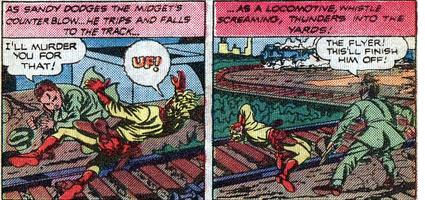
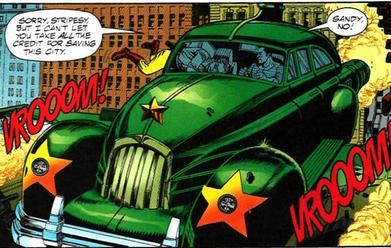
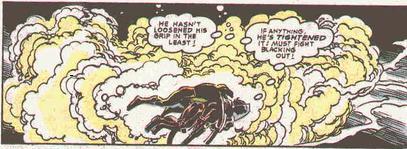

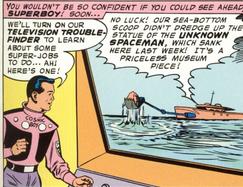
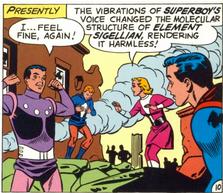
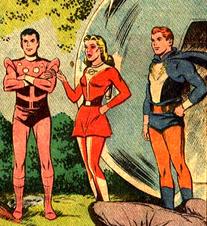
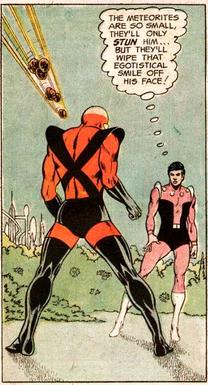
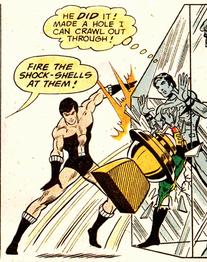
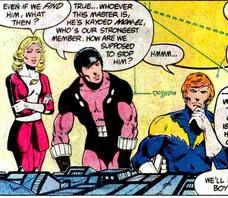
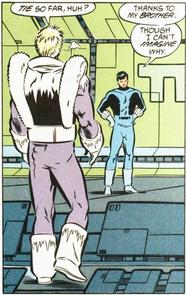

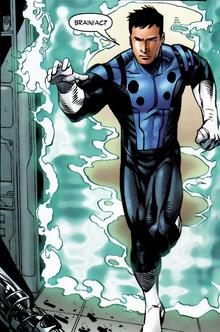
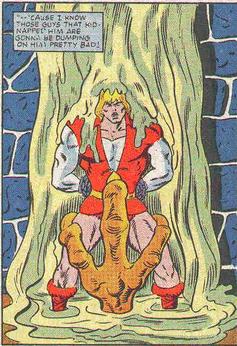
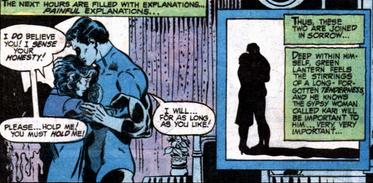 (GL 117)
(GL 117)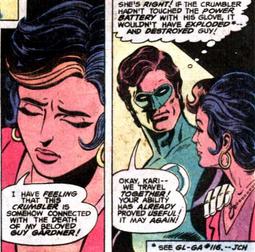 (GL 118)
(GL 118)